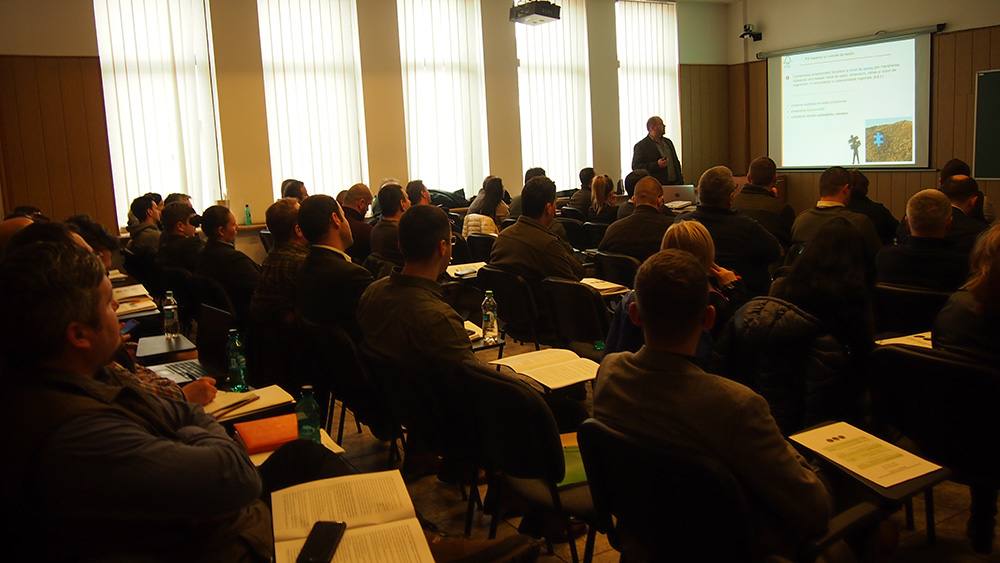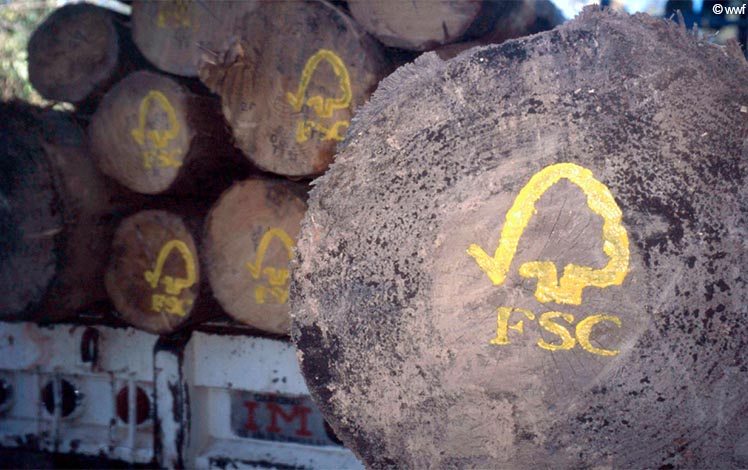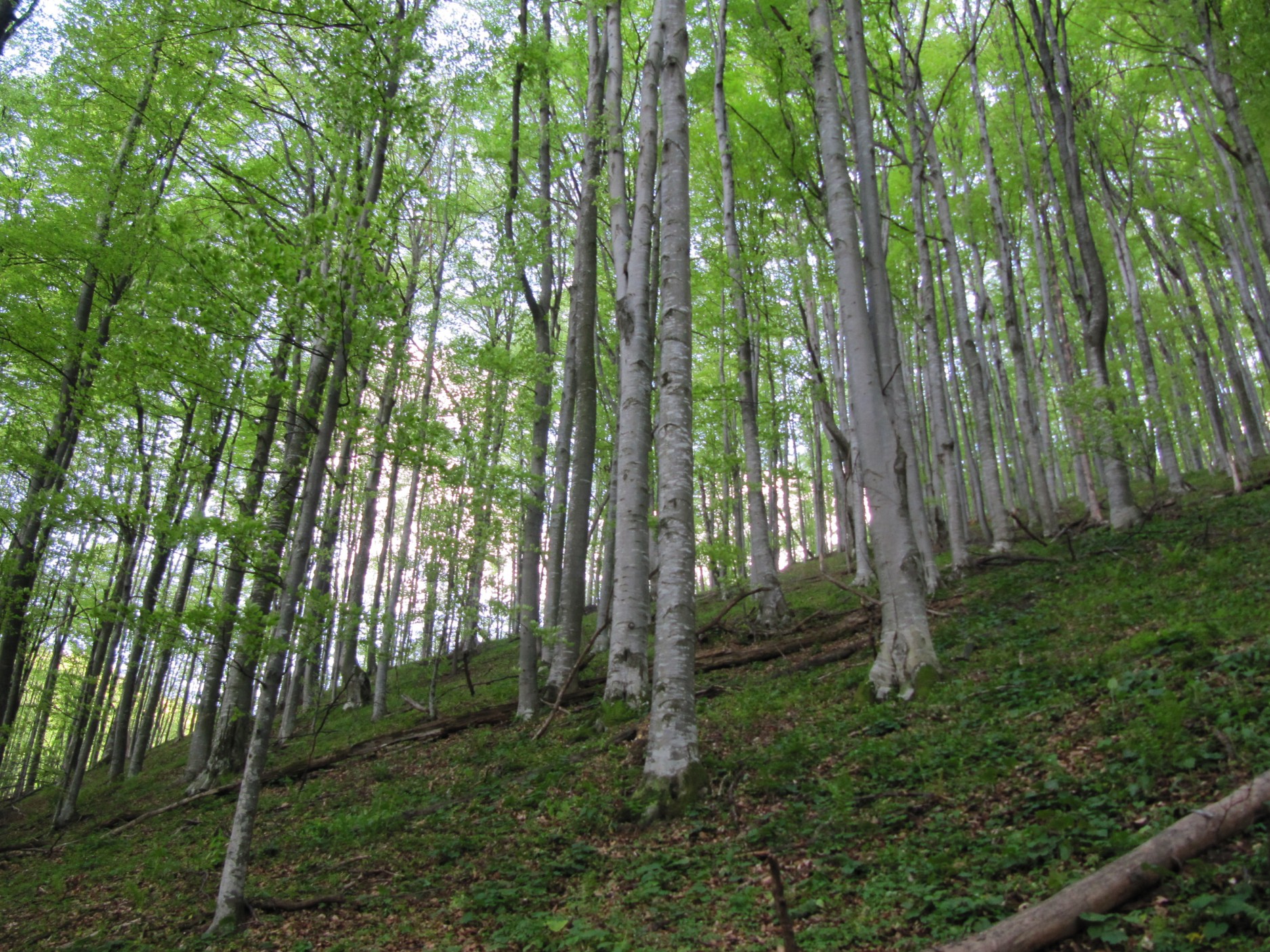Forest Stewardship Council® (FSC®)
FSC (Forest Stewardship Council) (Forest Stewardship Council) is an independent, non-governmental and non-profit organization founded in 1993 to promote the responsible forest management of the world’s forests.
FSC is registered in Mexico as a membership organization – Association Civil and operates at international level, offering services through the FSC International centre located in Bonn, Germany, as well as through an international network of National Offices.
The idea of forest management certification came up in the context of the major concerns related to the management of the forests and follows the idea of the global certification of systems and performances in the most diverse activity fields. The certification of forest management, best known as the forest certification, has its origins in the concerns of the society which appeared with the massive deforestation of tropical forests since the early 80-90’s.
After the United Nations Conference for Environment and Development held in Rio de Janeiro in 1992 the need for a sustainable development strategy for the world’s forests, with a large consultation of all stakeholders was identified. Following this idea, in October 1993 an official agreement was signed on launching the FSC (Forest Stewardship Council), a certification scheme in which the economic, social and environmental interest have equal rights.
Types of certifications
1. Forest Management Certification
The forest management certification is a voluntary act; therefore the certification process can only be carried out at the request of the owner/ manager of a forest.
It represents the assessment of the way in which a forest is managed against a standard accredited by an independent organisation named certification body.
2. Chain of Custody Certification
The forest management certification is followed by the certification of the “chain of custody” certification, which aims at developing mechanisms for tracing the wood products or the non-timber forest products sourced from certified forests from the source to the consumer (end buyer). In this way, the entire route of the certified wood, from stump, through transportation and primary and secondary processing etc., can be traced, identified, and documented, so that its source can be proved at any moment.
Generally, the forest management certificate includes the chain of custody certificate, through which the forest manager ensures the identification of the certified wood until it leaves the forest (important especially in the case of scattered forest areas in which certified forests may intertwine with non-certified forests).
3. Controlled Wood Certification
FSC Controlled Wood refers to wood or wood products which are not sourced from any of the following categories:
- illegally harvested wood;
- wood harvested in violation of traditional and civil rights;
- wood harvested in forests where high conservation values are threatened by management activities;
- wood harvested in forests which were converted to plantations or non- forest use;
- wood harvested from genetically modified trees;
Further information related to the FSC (Forest Stewardship Council) certification can be found at:
FSC International site: www.fsc.org
Forest Certification Association site: www.certificareforestiera.ro
The FSC Principles and Criteria or the Forest Management Standard describe at a general level the elements and rules for an environmentally appropriate, socially beneficial, and economically viable management. Meeting these principles is the condition for obtaining the FSC certificate.
In order to apply this standard to the particularities of our country, it is necessary to adapt it at a national level, in order to make it really and efficiently reflect the national legislation, the social, economic and environmental conditions in our country, through a participative process in which the relevant stakeholders are appropriately involved.
The benefits of having a National Standard are multiple:
- During the public consultations, all the affected stakeholders have an opportunity to contribute to the contents of the indicators and verifiers from the point of view of their field. Through their contribution, the new standard will gain significant value on each of its three components (economic, social and environment).
- The Standard Development Group, based on the workshops and on the suggestions received during the public consultations, shall consider the national legislation in a most practical way, so that the resulting National Standard should reflect the realities in our country both in the field and at the level of the legislation according to which forests are managed.
- It comes with a unitary approach all around the country and replaces the Generic Standards of the Certification Bodies, which may differ in the way the indicators are developed.
- It improves the reliability and quality of the indicators and verifiers through the contribution of the technical experts in different fields and the involvement of the Consultative Forum.
The development process for the FSC National Standard for Forest Management shall be carried out in compliance with the requirements in Standard FSC-STD-60-006 V1-2 “Process Requirements for the Development and Maintenance of National FSC Standards”.
FSC is a certification system with international applicability; it is present in more than 112 countries, with over 29450 certificates issued for the Chain of Custody.
With the FSC Forest Management, it is present in 80 countries, with a number of 1337 certificates issued and a total area of over 183 million ha of certified forest.
In Romania there are 325 certificates issued for the Chain of Custody and 2.52 million ha of certified forest under 15 certificates.
Annually, over 300 million cubic meters of wood, representing 16.6% of the total timber production are certified – an increase of 8% against the previous year, according to a survey carried out by FSC International. https://ic.fsc.org/preview.global-volume-of-fsc-wood-produced-annually.a-4920.pdf






